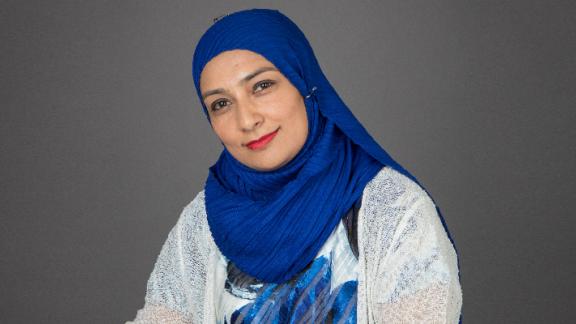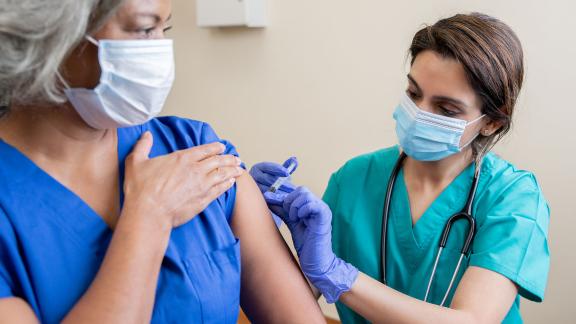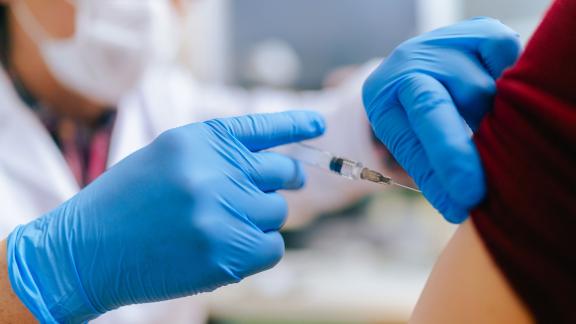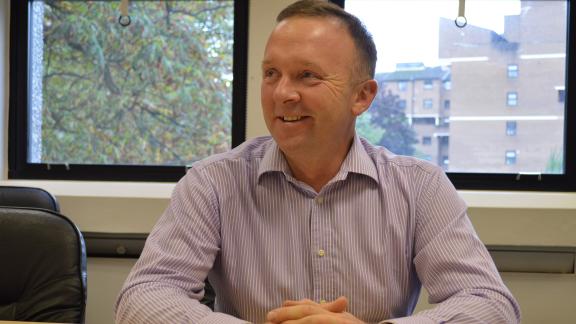COVID-19 vaccination programme: building a fairer society

‘We must seize this opportunity and play our part in building back a fairer society,’ writes Dr Farzana Hussain, clinical director for Newham Central 1 PCN, as she highlights initiatives taken by primary care networks (PCNs) across the country to prioritise vaccinating according to the needs of local populations.
There is no longer any denying the sharp focus that the pandemic has thrown onto the issue of health inequalities in the UK and exposed the consequences of a longstanding failure to tackle them.
As a society we now need to grasp the nettle and build a fairer system which does not put any parts of our society at a disadvantage. One of the first opportunities we have to do that is through the COVID-19 vaccination programme.
The guidance from the Joint Committee on Vaccination and Immunisation (JCVI) makes clear the need for flexibility in local vaccine delivery in order to tackle health inequalities, “such as might occur in relation to access to healthcare and ethnicity”.
As co-chair of the NHS Confederation’s PCN Network, I know there is a huge appetite among primary care networks nationwide to tackle health inequalities, and this flexibility gives them some power to do so.
Prioritising access to the vaccine predominantly based on age will still leave many at risk. There is extensive data about groups of people who are at risk of serious disease and mortality from COVID-19 but do not necessarily fall into priority groups: people from BME communities, poverty and deprivation, adults living with a learning disability, people in the travelling community.
It is deeply encouraging to see leaders of primary care networks proactively taking up the reins. The new QCovid identifies these patients, but many PCNs were ahead game.
PCNs in action
In Shropshire, Shrewsbury PCN has taken the clinical decision based on evidence, fully supported by its board and clinical commissioning group, to prioritise people with a learning disability.
Having made initial offers, the team is now revisiting the list to address any barriers people are experiencing to give further support to help them receive the vaccine.
Shrewsbury PCN is also prioritising people who sleep rough and those in temporary accommodation through an outreach service, going the extra mile to make sure this group – whose low life expectancy of just 47 years means they would likely wind up lower down the JCVI priority lists - gets the protection of a jab, including vaccinating on the street if they need to.
In South East Oxford Health Alliance PCN, the team has acted quickly to identify racial disparities in vaccine uptake and to explore why there may have been lower uptake among BME communities, including mistruths and a distrust of ‘authority’. The PCN is working with the local councils, voluntary sector and CCG in outreach to these communities and inclusion groups and targeting those who have not responded to their invitations both for their PCN but also across the county. They are seeing the power and importance of collaboration in outreach to these communities.
Listening is such a big part of understanding why some groups are underrepresented. I have had a similar experience at my PCN in Newham, East London. It is a huge issue and my team has been working to really actively listen to people’s concerns.
Our complete range of primary care experts – including, but not limited to, pharmacists to GPs to nurses – are trusted within their communities and we need to listen to people, to understand them, and to repay that trust by giving them the opportunities to come forward and the facts so that they want to when the time comes.
The COVID-19 pandemic has meant that strong community relationships are still developing, with continual learning on how vulnerable populations can be reached. In Darlington, the PCN clinical director, Dr Amanda Riley, has forged close links with travelling community leaders who have been hit hard by the second wave. Through their open dialogue, they have established that there are no barriers for travellers accessing GP appointments, but nevertheless Dr Riley stays in contact and works with them, building trust should any issues arise.
More to be done
PCNs are not complacent and realise more work needs to be done to reach people in vulnerable and socially deprived communities. With the publication of the UK COVID-19 vaccines delivery plan on February 13 and the announcement of the COVID-19 Population Risk Assessment on February 15, PCNs now have more tools to help identify vulnerable people and people who are at risk from COVID-19.
The pandemic has bought into focus the severe inequalities that exist in the UK. With the much-needed flexibility in the JCVI’s guidance, PCNs are in a unique position to ensure that no-one is left behind in the vaccine roll-out. We must seize this opportunity and play our part in building back a fairer society.
Dr Farzana Hussain is GP principal and clinical director at Newham Central 1 PCN, and co-chair of NHS Confederation’s PCN Network. Follow her on Twitter @fhussain73



